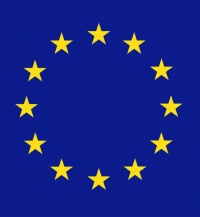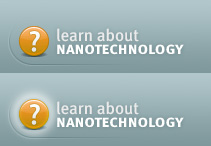European Commission Gives Grant To Investigate Transatlantic Oversight Of Nanotechnology
 Researchers at the London School of Economics and Political Science (LSE), Chatham House, Environmental Law Institute (ELI) and the Project on Emerging Nanotechnologies (PEN), an initiative of Woodrow Wilson International Center for Scholars and The Pew Charitable Trusts, have been awarded a $587,000 European Commission grant to conduct an international research project on regulating nanotechnologies in the European Union and United States.
Researchers at the London School of Economics and Political Science (LSE), Chatham House, Environmental Law Institute (ELI) and the Project on Emerging Nanotechnologies (PEN), an initiative of Woodrow Wilson International Center for Scholars and The Pew Charitable Trusts, have been awarded a $587,000 European Commission grant to conduct an international research project on regulating nanotechnologies in the European Union and United States.
In recent years, several transatlantic conflicts have erupted over how to regulate chemicals, beef hormones and genetically modified food. These disputes have shown the need for better international coordination of risk assessment and management. But how can nanotechnologies be effectively regulated to ensure both innovation and safety? And how can emerging European and U.S. regulations be made compatible so as to avoid future conflicts in this major growth area?
The project will be coordinated by Dr. Robert Falkner at LSE. Dr. Falkner, a deputy director of LSE’s Centre for Environmental Policy and Governance and international relations expert, says:
“High profile controversies such as those concerning genetically engineered crops have highlighted how important it is for policymakers to identify potential risks associated with new technologies and to promote international cooperation in the early stages of the policy process. There are known gaps and inadequacies in existing regulatory approaches to nanotechnology that must be addressed if we are to effectively promote innovation while ensuring safety and enhancing public acceptability. This project aims to examine current practice and provide recommendations to policy makers on both sides of the Atlantic on how to promote best practices and avoid future trade conflicts.”
This research effort also will try to look beyond the current and near-term state of nanotechnology development and oversight. According to PEN director David Rejeski:
“The first generation of nanotechnology applications and products is here. Second generation uses — in electronics, sensors, targeted drugs and active nanostructures — are emerging. But capabilities of these early nanotechnology products pale in comparison to third and fourth generation applications in areas such as robotics, multiscale chemical and bio-assembly, and supramolecular structures. This project is aimed at helping governments, businesses and scientists around the world make informed policy decisions that will not only help protect the public today, but ensure continued and responsible technological development in the future.”
ELI President Leslie Carothers lauds the potential for international cooperation on nanotechnology environmental, health, and safety governance. According to Carothers:
“This inventive, transatlantic research partnership is an essential step forward and will make an important contribution at a critical juncture in the development of governance structures for nanotechnologies worldwide. With hundreds of nanotechnology-enabled products already available to the public and many more reaching the marketplace each year, the need for effective governance structures to manage the potential risks associated with nanotechnologies becomes more and more urgent. This project will help inform ongoing and future efforts in the US to develop much-needed regulatory and alternative nanotech governance tools.”
The aim of the project is threefold:
• To produce high quality analysis of the comparative dimensions of nanotechnologies regulation in the EU and U.S.; • To publish and widely disseminate policy-relevant research results that will assist policy processes and debates on both sides of the Atlantic; • To create greater awareness among decision-makers and opinion formers for congruent approaches and transatlantic convergence in nanotech regulation.
The impetus for this project came out of the April 2007 U.S.-EU summit, at which U.S. President George W. Bush and German Chancellor Angela Merkel launched an initiative to seek closer cooperation on trade and regulation. The project will involve a research report and analytical papers based on comparative research, a major international conference to be held at Chatham House and a series of outreach events in Brussels, Berlin, Paris and Washington throughout 2009. The project findings will feed into a major EU conference in 2009 and the 2010 EU-U.S. Summit.
February 6, 2008
Summary
Researchers at the London School of Economics and Political Science, Chatham House, Environmental Law Institute and the Project on Emerging Nanotechnologies, have been awarded a $587,000 European Commission grant to conduct an international research project on regulating nanotechnologies in the European Union and United States


